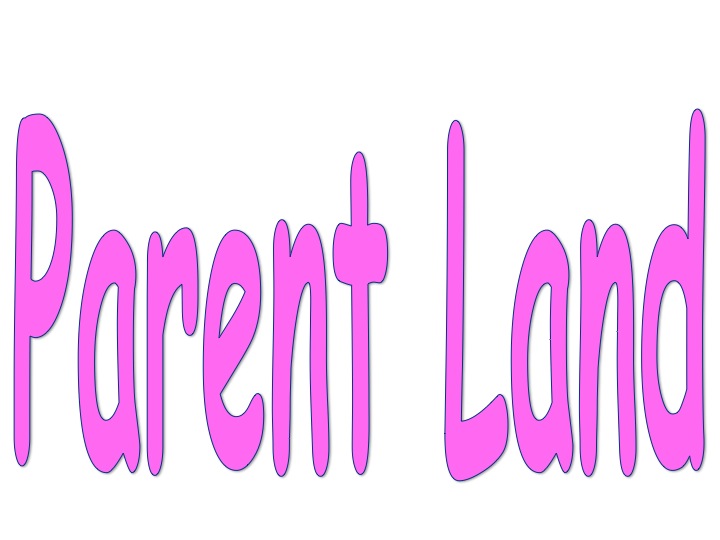If asked, “What are your goals as a parent?”, I suspect most folks would speak to the outcomes they want for their children. There will likely be fair agreement on the big issues: to be safe, to be loved, to be healthy, and to be successful or content with their life choices. Most will also want their children to do well in school, to make friends, to get a job they like, and to find a caring partner and perhaps have a family. But recognize that these are the goals parents have for their children. They are child-focused outcomes, hopes and wishes that we have for our children’s future. These are not parenting outcomes or parenting goals.
I use the term parenting goals to refer to goals that guide parenting and that are specifically tied to parenting. Examples include a loving relationship with your child or the ability to set firm limits without becoming a screaming banshee. As parents, we have limited control over child outcomes, but we have considerable control over parenting outcomes and parenting goals. More importantly, if we know which parenting goals deserve our time and energy, we can help our children immensely.
Parent Land: The Game. To get you thinking about your own parenting goals, I’d like you to imagine a game we’ll call Parent Land. Think of it as the parenting version of Candy Land, the popular board game for young children. It’s my attempt to categorize the many goals and outcomes a parent might pursue, either for their own benefit or the benefit of their children. The categories were chosen to reflect current research on parenting and child development, but there’s also influence from my own experiences as a parent and family therapist.
Like parenting itself, the main objectives of Parent Land are important child outcomes, what I call “Get All 3 and Win!” Research on social and emotional development has identified three key outcomes or assets worth promoting:
Relatedness refers to a sense of belonging and enduring connection to others.
Autonomy refers to children’s ability to act on their own behalf and to have a sense of personal control.
Competence is the ability to effectively interact with and adapt to one’s environment.
The next category called “Fatal Wounds” (remember, I’m using a game analogy!) is for three child outcomes that you’ll want to avoid.
Children who come to use coercion or emotional crises to influence others will not advance in their relatedness.
Children who cope through passiveness or dependency will not develop a sense of autonomy.
Children who fail to acquire basic life skills and forego real world experiences will struggle to adapt to changes over time.
These essential positives and negatives are shaped, in part, by our parenting, so there’s clearly a job for us, which is not so true for child outcomes based largely on genetic endowment (e.g., star athlete, concert pianist). But it’s a job that can get overlooked as parents pursue other goals not tied to these essential outcomes. These could be anything, but here are just a few of the things we might pursue instead of the essentials:
- Things we wished for as kids (our child as prom queen or king),
- Things that bother us as adults (our child likes to wear only black or only pink),
- Things that other parents value (our child being varsity cheer or soccer),
- Things that make our children look attractive (our child’s clothes, hair),
- Things that make us feel like we’re a good parent (children happy or eating),
- Things that “prove” we’re not a bad parent (scolding our children in public for something they do routinely at home), and
- Things our children will learn later on their own but we feel compelled to teach now (not wearing the same shirt 5 days in a row).
You can go after these all things, and probably achieve some of them, but the secret to winning the game of Parent Land is to focus on what truly matters. If you can narrow your parenting goals, zeroing in on the important stuff, life in Parent Land makes a lot more sense and is way more beneficial for your children.
Now let’s take a look at some other categories in the Parent Land game.
One is labeled “Battle Gear and Battle Cries.” This is all the qualities or attributes parents might wish for their children. I call these battle gear and battle cries because, generally speaking, it’s helpful when parents also “wear” or “own” these attributes. Parents own an attribute when they live it earnestly and voice it openly. Examples include savoring the positive moments in life, working hard to meet a goal, standing up for one’s ideals, devoting time to serve others, being open to the transcendent aspects of human existence. This is an approach to imparting values and virtues that doesn’t rely heavily on teaching or preaching; instead, it assumes that children invest in a family’s values and follow a parents’ lead because of the strength and quality of their relationship they have with that parent.
Another important category is in the Parent Land game “Basic Training”. Unlike “Battle Gear & Battle Cries”, these goals are best handled through direct instruction or close advising. Parents cannot and should not assume that children are adequately informed about peer pressure, sex, alcohol and drugs, and how to apply for a job or manage money. Children need specific, accurate, and direct input from parents on these issues. It’s also hazardous to assume that children appreciate or can accurately recall your expectations about these issues. This is especially true if your child is difficult, strong-willed, and prone to taking risks. Research involving such children has shown the importance of closing any potential “loopholes” on parents’ expectations. Sure, they’ll roll their eyes and complain but your singing the same “old song” again and again is a critical part of their basic training.
Next up is a category I call “The Napoleon Complex”, meaning that parents who pursue these outcomes might have their hopes too high. They’re in danger of trying to use their power and authority to ensure that all goes according to their plan and their desires. These outcomes (e.g., zero sibling conflict) are actually ones that many parents hope for but, unfortunately, are not realistic. Parents can waste a great deal of time pursuing them.
I also included in the Parent Land game a category labeled “Treacherous Terrain!!” These are goals and outcomes that are not just unworkable or irrelevant; pursuing them can do real harm. Many of the parents I see in my clinical practice get trapped in this part of Parent Land. Examples include seeking absolute certainty about a child’s safety, insisting that a difficult child submit always to parental authority, relying on children for emotional support are all examples of damaging pursuits.
The last category in Parent Land recognizes that children learn a great deal from their peers. Unfortunately, it’s not always clear whether peers are friend or foe. Parents hoping to “win” the game of Parent Land are aware that peers can bring advice, information, and influence. Your job is to promote access to peer groups that advance your children’s quest for positive essentials (i.e., relatedness, autonomy, & competence) and limit their access to negative outcomes. That means it’s often helpful to form strong alliances with positive peers and the parents of positive peers. But this can only work if your children are also invested in those peers and their activities.
My goal in offering the game of Parent Land is more provocative than informative. We will likely disagree on some categories or some of the listings within categories, but I hope we can agree that goals are important to parenting. If nothing else, the game of Parent Land tells us that parents face many distractions in their efforts to figure out what matters most and where to spend their time and energy.



Leave A Comment